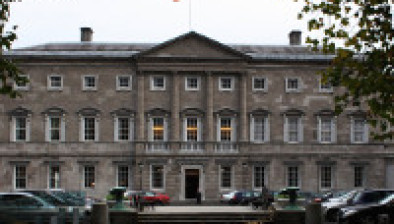High Court: Challenge to refoulement decision fails where risk of FGM not raised in representations

The High Court has refused leave to bring judicial review proceedings challenging the justice minister’s refoulement decision in circumstances where an alleged risk of female genital mutilation (FGM) was not raised in her leave to remain or refoulement representations to the minister.

About this case:
- Citation:[2025] IEHC 183
- Judgment:
- Court:High Court
- Judge:Ms Justice Siobhán Phelan
Delivering judgment for the High Court, Ms Justice Siobhan Phelan warned: “Where there has been a rejection of the claim by the tribunal on credibility grounds, it is difficult to get around the fact that there is no evidence before me that the applicant herself ever referred to it again until after she was served with a deportation order. If the minister is to be faulted for failing to consider a relevant matter, a basis in fact for this consideration must first be demonstrated.”
Background
The first named applicant, JCE, made an application for international protection in Ireland on 20 January 2021. JCE’s claim was based on her political affiliations with the indigenous people of Biafra.
JCE’s application, which by then included her infant triplets, was investigated and considered in February 2021. The international protection officer recommended that the applicants should not be given a refugee declaration or a subsidiary protection declaration.
Thereafter in August 2022, the minister refused the family permission to remain in the State under s.49 of the International Protection Act 2015.
On 11 November 2022, the JCE’s appeal to the International Protection Appeals Tribunal (IPAT) was heard. She was legally represented at the appeal and in addition to her political affiliations, she relied upon an alleged risk of female genital mutilation (FGM) to her infant daughter which she raised for the first time 17 days prior to the hearing.
JCE contended that there was a tradition of FGM in her husband’s family and that her sister-in-law’s child had been subjected to FGM.
The IPAT accepted that country of origin information (COI) supported the conclusion that FGM could present a risk to a child notwithstanding that her mother is educated and objecting, as JCE was.
However, the IPAT determined that the risk did not arise in circumstances where JCE had completely failed to mention this alleged risk without a reasonable explanation for that omission, and found that her account of events leading to her application for international protection was not credible. Nothing further in relation to the purported risk of FGM was advanced to the minister after the IPAT decision.
The minister then reviewed the previous decision to remain and once again, notified JCE of the refusal of permission to remain on 25 June 2024. In October 2024, JCE was notified of the decision in relation to her representations and was served with a deportation order.
On 24 December 2024, JCE filed proceedings seeking leave to bring judicial review proceedings challenging the minister’s decision, alleging a failure to have regard to her belief that her daughter was at risk of FGM if she were to be deported to Nigeria.
The High Court
Ms Justice Phelan considered JCE’s contention that s.5 of the Illegal Immigrants Trafficking Act 2000 (as amended) did not apply to the minister’s refoulement considerations under s.50 of the 2015 Act.
The judge proposed to assess the application by reference to the lower threshold of merely “arguable grounds” as set out in G. v. D.P.P. [1994] 1 I.R. 374 and by reference to Order 84 of the Rules of the Superior Courts, 1986 (as amended).
The High Court considered that the core ground of challenge was that the minister failed to have regard to JCE’s belief that her daughter was at risk of FGM if she was to be deported to Nigeria in the s.50 refoulement considerations and therefore failed to properly consider the level of risk arising, which failure rendered the s.50 decision unlawful.
Ms Justice Phelan set out that in the first instance, it was to be acknowledged that s.50 considerations took place at the end of a multi-stage decision-making process, and that in line with E.N. v. Minister for Justice [2021] IEHC 585, the minister was entitled to rely on the earlier negative decisions of protection bodies.
The court was satisfied that the prescribed statutory process was followed and that the applicants benefitted from consideration of their application for protection by the International Protection Office (IPO) and IPAT before further consideration was given to leave to remain considerations under s.49 and consideration of the prohibition on refoulement under s.50.
Ms Justice Phelan stated that “My single greatest difficulty with this application for leave at this juncture is the fact that while it is true that the risk of FGM was not considered in express terms in the s. 50 decision, it appears that no case was ever made to the Minister after the IPAT rejection of the claim that a refoulement risk arose by reason of a risk of FGM.”
In response to the applicant’s contention that she had never changed her instructions and that references to FGM were omitted from the representations made on her behalf through oversight and overwork on part of her former solicitors, the court noted that “it does not seem plausible that the first named applicant was unaware of the contents of the representations made on her behalf, particularly when it is apparent that she engaged through her representatives in the process…”
Noting that the IPAT’s rejection of the FGM risk had not been challenged, Ms Justice Phelan recognised that JCE was now seeking to challenge the s.50 decision before her based on a failure to consider an FGM risk properly in circumstances where she herself did not see fit to ensure that this formed part of her representations either in the leave to remain or the s.50 decision-making process.
The judge opined: “It would be surprising that if the applicant had a genuine concern about a risk of FGM in respect of her infant daughter that this concern would not have been the focus of further attention in the submissions made during the leave to remain consideration process and the refoulement consideration process.”
Highlighting that even if the applicant’s averment that she did not know the risk of FGM was truthful, it was not permissible to mount a challenge against the minister’s decision under s.50 of the 2015 Act based on a claim not previously made.
The court also considered that a medical report now sought to be relied upon was not presented to the minister as part of the s.49 or s.50 consideration process notwithstanding that JCE was legally represented at all material times and engaged in that process.
Conclusion
Accordingly, the High Court refused the application for leave.
J.C.E. & Ors v The Minister for Justice and Equality & Ors [2025] IEHC 183











